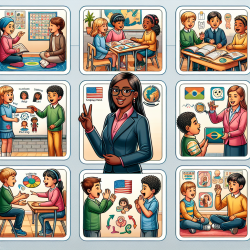As practitioners dedicated to improving outcomes for children with intellectual disabilities, it is imperative to rely on evidence-based strategies. A recent study titled Effect of a classroom-based intervention on the social skills of pupils with intellectual disability in Southwest Nigeria provides valuable insights that can be directly applied in our practices.
The study, conducted by Adeniyi and Omigbodun, evaluated the effectiveness of the Explore social skills curriculum in enhancing the social skills of 30 pupils with mild to moderate intellectual disabilities. The intervention was administered over eight weeks, with teachers delivering lessons 3-4 times a week. The social skills of participants were assessed using the Matson Evaluation of Social Skills for Individuals with Severe Retardation (MESSIER) both before and after the intervention.
The results were significant. At the baseline, 63.3% of participants had moderate social skills impairment, and 30% had severe impairments. By the end of the intervention, there was a 20% reduction in severe impairments and a 13.3% increase in participants with minimal or no impairments. The mean difference in social skills scores pre- and post-intervention was 9.34, with a statistically significant improvement (t = 3.71; p = 0.001).
These findings suggest several actionable strategies for practitioners:
- Implement Structured Social Skills Curricula: Utilizing a structured curriculum like the Explore social skills curriculum can yield measurable improvements in social skills for children with intellectual disabilities.
- Frequent and Consistent Instruction: Regular lessons, delivered multiple times a week, can significantly enhance social skills. Consistency is key.
- Adapt Curriculum to Cultural Context: Tailoring the curriculum to fit the social and cultural context of the students can enhance its effectiveness.
- Train Educators: Providing teachers with the necessary training and resources to deliver social skills lessons is crucial for successful implementation.
Moreover, the study highlights the importance of ongoing research and adaptation of interventions to suit specific contexts. Practitioners are encouraged to explore further research in this area to continue improving outcomes for children with intellectual disabilities.
To read the original research paper, please follow this link: Effect of a classroom-based intervention on the social skills of pupils with intellectual disability in Southwest Nigeria.










